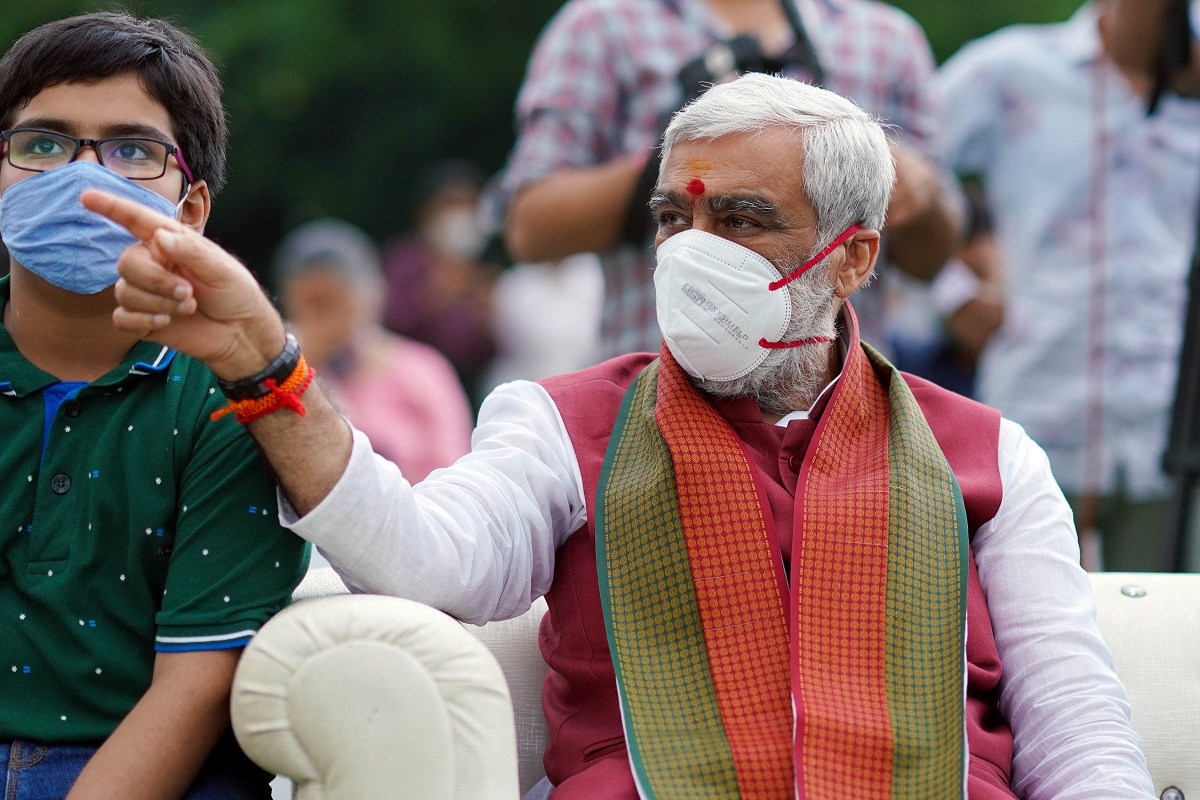Nadda, 5 others take oath as RS members
Five others who also took oath as members of the Rajya Sabha today are Ashokrao Shankarrao Chavan, Chunnilal Garasiya, Anil Kumar Yadav Mandadi, Sushmita Dev and Mohammad Nadimul Haque.
The Government is also implementing NAPCC to support adaptation measures of States/UTs in areas that are particularly vulnerable to the adverse impacts of climate change.

(ANI Photo)
The Surface air temperature over India has risen by about 0.7 degrees celsius during 1901-2018, said the Minister of State for Climate Change Ashwini Kumar Choubey here on Thursday.
He said India’s contribution to global warming is very less than the developed countries. “India with more than 17% of the global population has contributed only four percent of the global cumulative greenhouse gas emissions between 1850-2017,” the Minister stated in a written reply to the Rajya Sabha.
He said reports from various sources including IPCC (Intergovernmental Panel on Climate Change) revealed that global warming was mainly due to cumulative historical and current greenhouse gas emissions of the developed countries.
Advertisement
“If the developed countries duly fulfill their responsibilities and commitments for mitigation, adaptation, and support in finance, technology, and capacity building then both the extent of global warming and its impacts can be reduced,” the Minister told the Upper House.
However, India firmly believes in global cooperation to deal with the challenge through multilateral processes. “India is a Party to the United Nations Framework Convention on Climate Change (UNFCCC), and its Kyoto Protocol (KP), and the Paris Agreement (PA). Even though India is not part of the problem, it is part of the solution, and has done far more than its fair share in addressing the climate change,” the Minister said.
He further stated that India stands committed to combating climate change through its several programmes and schemes including the National Action Plan on Climate Change (NAPCC) which comprises missions in specific areas of solar energy, energy efficiency, water, sustainable agriculture, Himalayan ecosystem, sustainable habitat, green India, and strategic knowledge for climate change.
The NAPCC provides an overarching framework for all climate actions. Thirty-three States /Union Territories (UTs) have prepared their State Action Plan on Climate Change (SAPCC) in line with NAPCC taking into account the State-specific issues relating to climate change. These SAPCCs outline sector-specific and cross-sectoral priority actions, including adaptation.
The Government is also implementing NAPCC to support adaptation measures of States/UTs in areas that are particularly vulnerable to the adverse impacts of climate change.
Advertisement